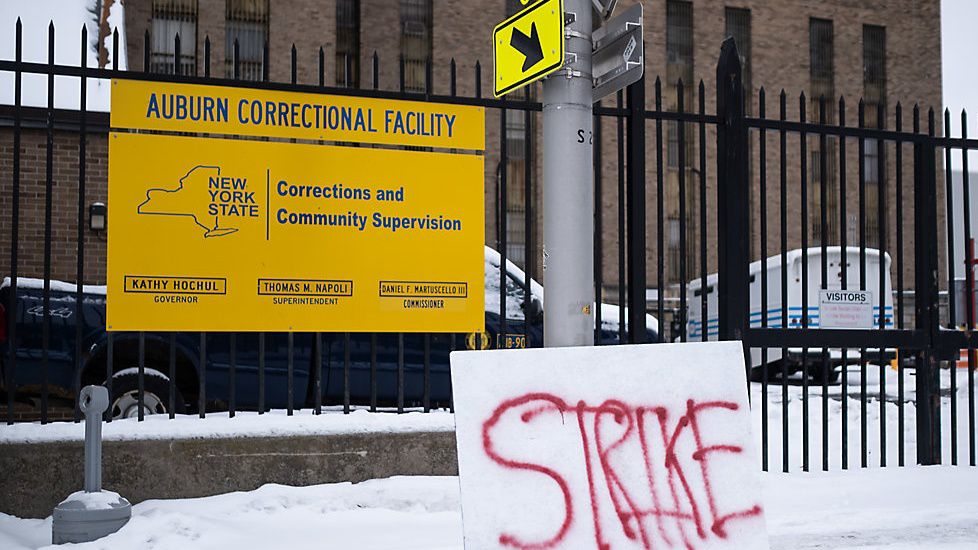An appeals court judge has granted an injunction against the state Department of Corrections and Community Supervision (DOCCS) for its temporary suspension of certain aspects of the state’s HALT Act, which limits the use of solitary confinement and that was part of an agreement to end the three-week unauthorized strike by correction officers earlier this year.
The lawsuit was filed on behalf of an inmate-rights organization.
Judge Michael Lynch, part of the appellate division of the state Supreme Court, ruled Tuesday that the injunction won’t take effect until July 11 to give DOCCS time to take measures to “ensure the safety of its facilities and their inhabitants.”
“We are grateful that the court recognized the grave harm caused by DOCCS’s unlawful suspension of the HALT Solitary Law and acted to stop it,” said Antony Gemmell, supervising attorney with the Prisoners’ Rights Project at The Legal Aid Society, the organization that argued the case. “This decision reaffirms that no agency — regardless of political pressure — can unilaterally disregard laws enacted to protect human rights. HALT was passed to end the torture of prolonged solitary confinement, and this injunction is a critical step toward ensuring the State honors that commitment and upholds the dignity of those in its custody.”
The HALT Act went into effect in 2022 and limits solitary confinement to a maximum of 15 consecutive days and prohibits its use for vulnerable groups, including individuals under 21 or over 55, pregnant people and those with serious mental illnesses. It also replaces aspects of solitary confinement with rehabilitative programming.
The law was a large contribution to the strike by prison workers across the state that began in February and lasted for 22 days. Ending the HALT Act was a primary demand of the strikers to return to work because of the unsafe conditions they say are created by limiting solitary confinement.
In getting correction officers to work, DOCCS Commissioner Daniel Martuscello agreed to suspend parts of the law for 90 days, with the possibility of further suspension when staffing drops below a certain level, and a committee to study aspects of the law before making recommendations to the Legislature. According to court papers, the 90-day period ended June 6.
The suspension frustrated criminal justice advocates and those who crafted the legislation.
Spectrum News 1 reached out to DOCCS for comment, who said it is reviewing the decision.


